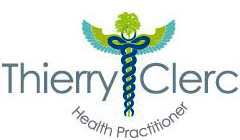In the middle of the horse-meat crisis, the European Union has decided to re-allow the use of meat and bone extracts to feed animals destined for human consumption, a practice that has been banned since the mad cow diseases of the 1990’s. The new practice will be implemented this year for fish, and will be introduced to pork and chickens in 2014.
The health authorities have put some safeguards: only “safe animals” (ie: not sick animals) will be used. Also, one species will not be fed with meat from the same species (so chicken will be fed from pork or fish, but not from other chickens). Finally, they have confirmed that a robust “labelling and tracking” programme will ensure that the system is safe.
Given the sensitivity of the issue, the EU has allowed each government to accept/refuse this practice, and it is a pity that in the in the UK, this news has not been covered in the mainstream media while the rest of the EU is up in arms. France and the Nordic countries have already expressed that they will probably not allow such practice in their farming industry.
Why does it matter?
The horse meat scandal proves the current system is highly flawed, and is not able to protect consumers. After the mad-cow disease outbreak, the EU has enforced the strictest meat label in the world, where every animal cut gets a unique number indicating the origin and history of the animal. The fact that beef has been replaced by horse in such a simple way, or that pork is routinely found in Halal or Kosher meat shows that the industry has made a mockery of these controls.
Worse, food are not routinely tested for toxins, drugs or presence of rat-meat for example. As one British public health official pointed out about horse meat: the added salt and preservatives in allowed in processed food would get you before any illegal meat or drugs would.
Shall I continue eating meat?
In my personal experience, most Westerners should eat meat and are not doing well on a purely vegetarian diet. Meat and fish have been part of the Western diet for many generations, and our genes have been shaped by this. Over the last 7 years of practice, I have only seen a few Asian clients who were doing well on a purely vegetarian diet, probably because of their family doing it for many generations. Meat and fish provide the right nutrients in an easy absorbable manner.
However, you need to eat good quality meat. On average, meat once or twice a week is best for most people. Make sure to buy it from a reputable source, well prepared and without any preservatives or additives.
What is a good food strategy
First, everyone needs to take ownership of the food, they take, and not expect the government to track everything. In the UK, we spend only 10% of our income on food, compared to 30% in the 60s. And most of it is spent on cheap, processed food.
Our genes have not been designed yet for low-nutrients. An ideal diet should be made of 60/80% vegetables in volume, and then the rest should be made of a mix of fish, meat and grains. The exact proportion depends on your lifestyle and genetic pattern.
As a starting point, you can find my Top-12 Tips on the Nutrition section of my website.
However, this is not easy to achieve if you have not have a good diet and lifestyle for many years.
How can I know what is the best food for me?
Under request, I can run a full-hour review of your health, which provides a detailed report on the best type for you to eat and avoid, and the best nutritional plan for you.
If you want more information, contact me directly.
Thank you for reading this article

